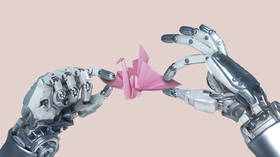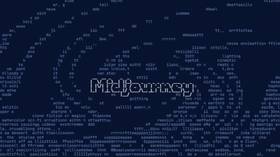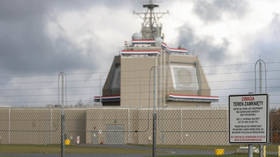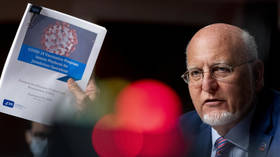AI-generated art can’t be copyrighted – US judge

Artwork created by artificial intelligence is not eligible for copyright protection, a US federal judge confirmed on Friday, rejecting a lawsuit by AI entrepreneur Stephen Thaler against the US Copyright Office.
"Human authorship is a bedrock requirement" for protection under the law, "at the core of copyright ability, even as that human creativity is channeled through new tools or into new media," US District Judge Beryl Howell wrote in her ruling rejecting Thaler’s judicial review petition.
While copyright law was "designed to adapt with the times," it had "never stretched so far" to "protect works generated by new forms of technology operating absent any guiding human hand," she continued.
Thaler, who runs the neural network company Imagination Engines, sued in response to the Copyright Office’s rejection of his 2018 application to protect artwork "created" by his AI system, the Creativity Machine. "A Recent Entrance to Paradise" was described in the submission as "autonomously created by a computer algorithm running on a machine."
While he had listed himself as the owner of the copyright on the application as if it had been produced as a work for hire, the office denied his application, arguing "the nexus between the human mind and creative expression" was critical to the idea of copyright protection.
Thaler had pushed back, arguing the AI should be eligible as an author "where it otherwise meets authorship criteria," with the system’s owner being the true owner of the copyright. The office’s refusal was "arbitrary, capricious, an abuse of discretion and not in accordance with the law," constituting a violation of the Administrative Procedure Act, he claimed.
The Copyright Office has previously stated AI-generated works are not copyrightable, but in March clarified this policy to note that content created with the assistance of AI could be protected if a human had "selected or arranged" it in a "sufficiently creative way that the resulting work constitutes an original work of authorship."
AI’s role in artwork is at the center of a months-long Hollywood writers’ strike. Over 160,000 film, radio and television workers have walked off their jobs, forcing major productions to pause as union leaders negotiate with producers to guarantee AI cannot be used to undercut their pay or replace them entirely.
In January, a group of artists sued the makers of AI art generators Midjourney, Stable Diffusion, and DreamUp, describing art-generating AI as "a parasite that, if allowed to proliferate, will cause irreparable harm to artists." Their class-action suit alleged that the tools violated millions of artists’ rights by slurping up their content for "training" purposes without consent or compensation, then turning a fat profit on the results.













